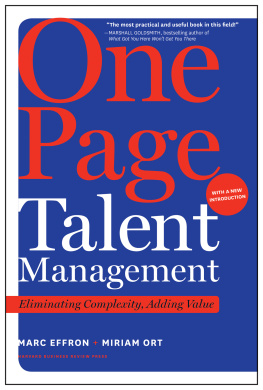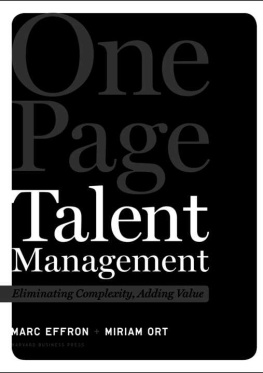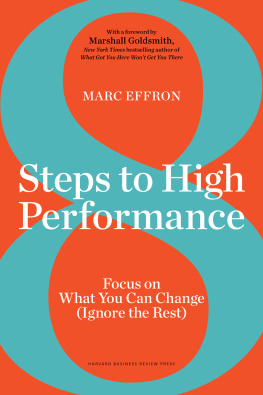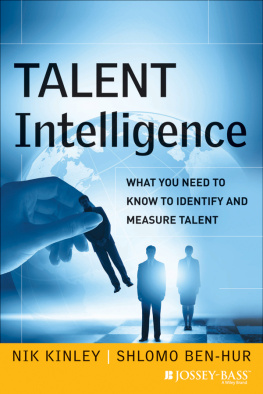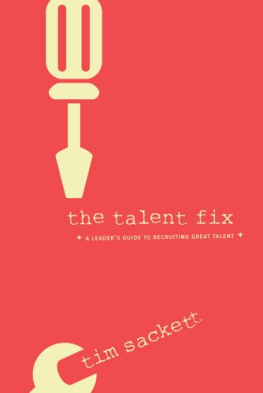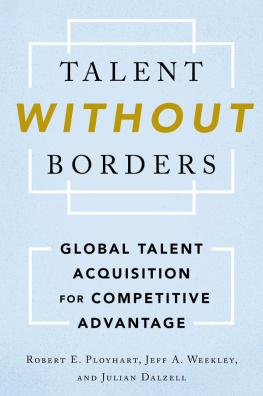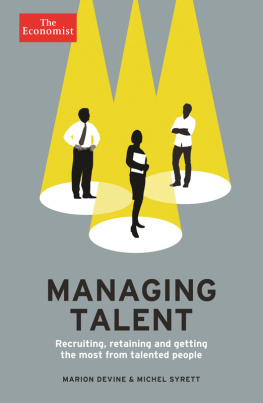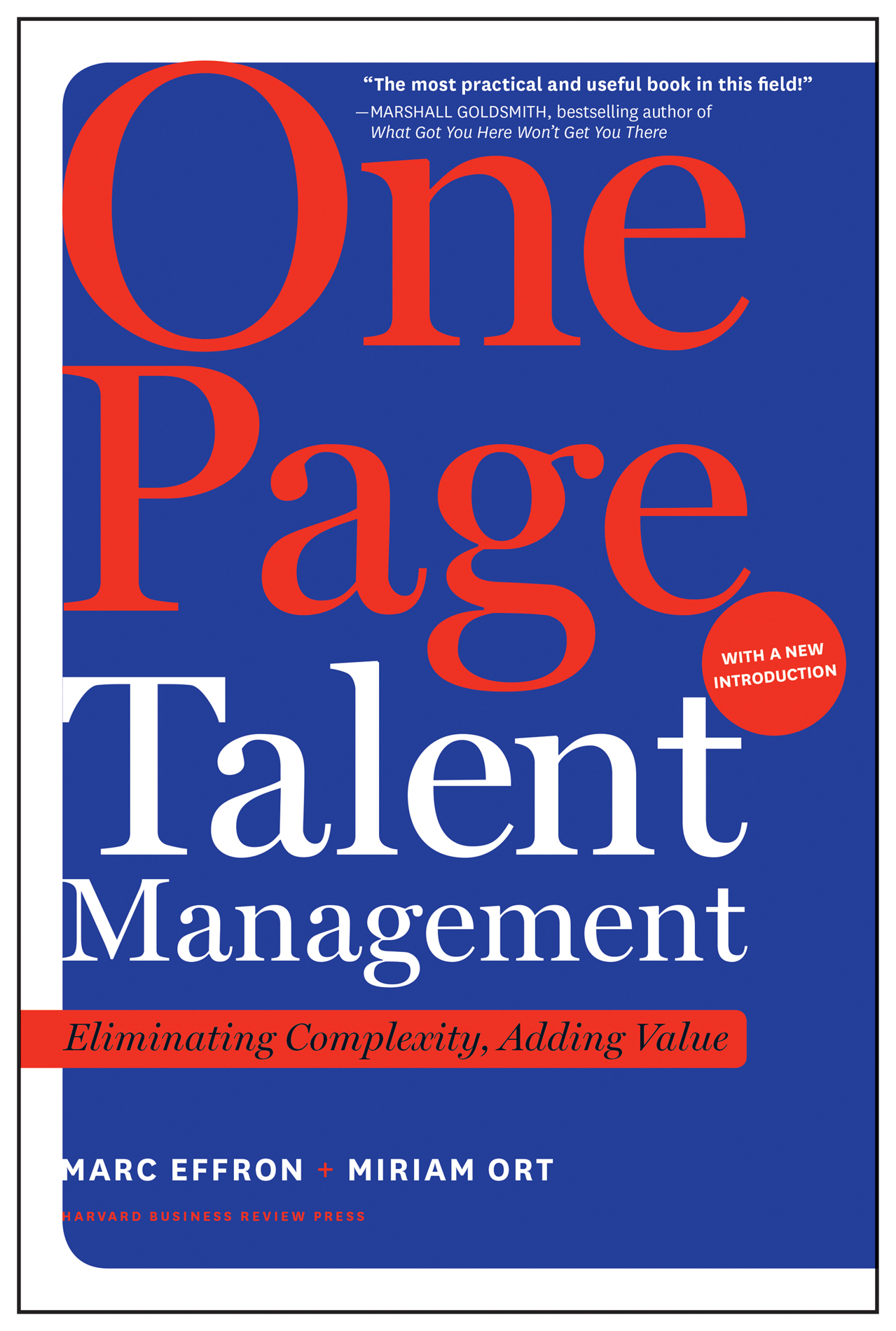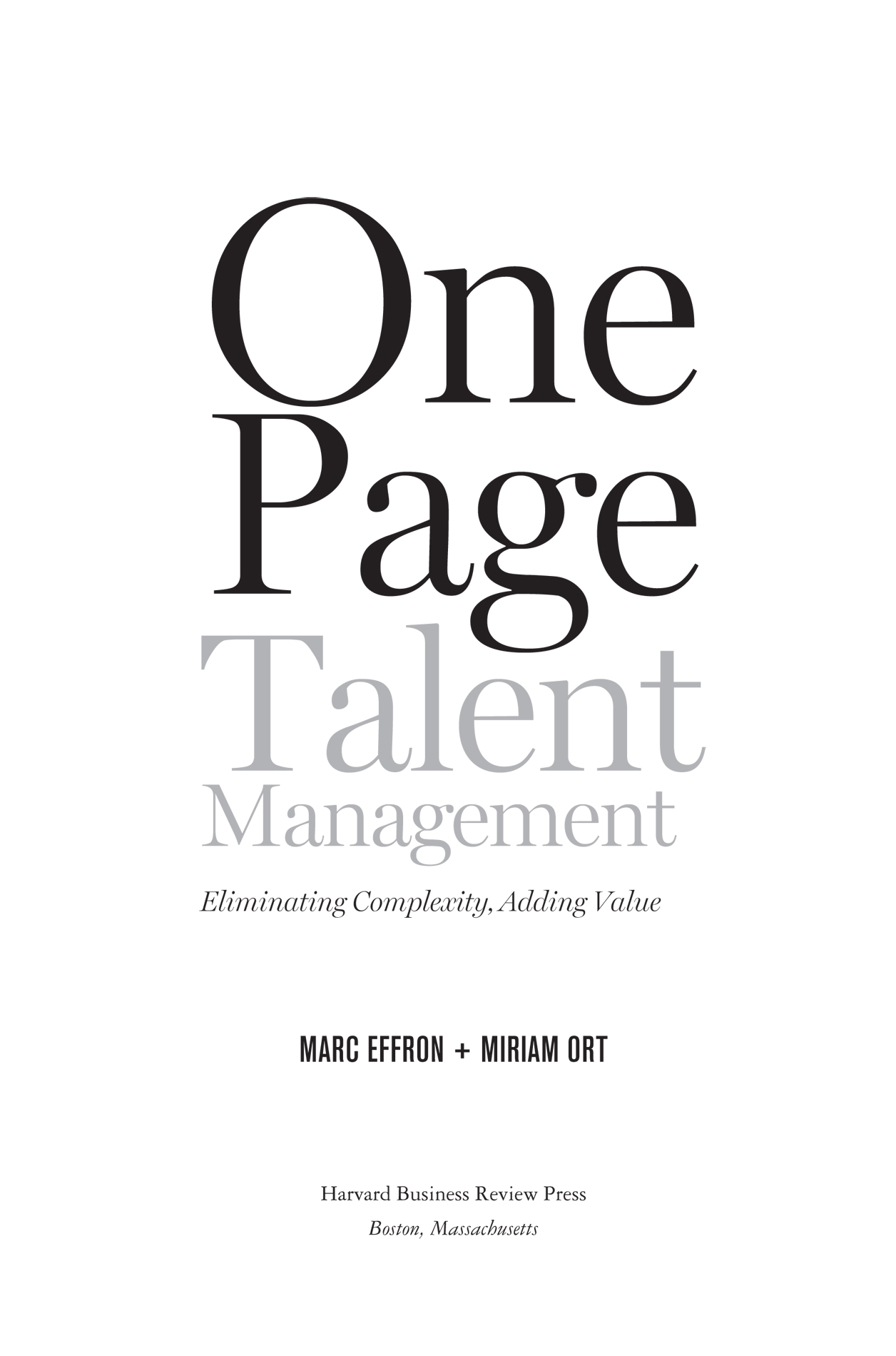Copyright
HBR Press Quantity Sales Discounts
Harvard Business Review Press titles are available at significant quantity discounts when purchased in bulk for client gifts, sales promotions, and premiums. Special editions, including books with corporate logos, customized covers, and letters from the company or CEO printed in the front matter, as well as excerpts of existing books, can also be created in large quantities for special needs.
For details and discount information for both print and ebook formats, contact .
Copyright 2018 Harvard Business School Publishing Corporation
All rights reserved
No part of this publication may be reproduced, stored in or introduced into a retrieval system, or transmitted, in any form, or by any means (electronic, mechanical, photocopying, recording, or otherwise), without the prior permission of the publisher. Requests for permission should be directed to , or mailed to Permissions, Harvard Business School Publishing, 60 Harvard Way, Boston, Massachusetts 02163.
First eBook Edition: Aug 2018
ISBN: 978-1-63369-640-2
eISBN: 978-1-63369-641-9
CONTENTS
NEW INTRODUCTION
Talent management has become a potent and established force in companies worldwide since we wrote One Page Talent Management (OPTM) eight years ago. Perhaps the worst global recession in a century drove companies to more diligently focus on managing talent. Perhaps corporate leaders finally understood that better quality talent would consistently deliver better business results. Perhaps OPTM demonstrated that effective talent management is simpler and more impactful than many of the rigid, bureaucratic approaches that had long dominated the HR practices at many large companies.
Regardless of the reason, were thrilled to see that talent management is a priority in companies globally and has become a well-established professional discipline. Were proud that many of those companies use OPTM to guide how they build their talent strategy and practices. In fact, were both often approached by people carrying dog-eared copies of the book, who explain how they have embedded OPTM constructs into the talent practices theyve already implemented and ask questions about how to further optimize for the future. These developments assure us that companies see the value of actively managing talent in the science-based, simple way that we advocate.
We also have had the opportunity to meet and consult with hundreds of companies since OPTM was published. Those interactions provide a strong dose of reality about how variable success has been and how far companies still need to travel on their talent journeys. Many organizations are making strong efforts, but too often we see fundamental gaps in their talent mindset, talent management capabilities, and accountability for action.
Whats Working
OPTM introduced the concept of science-based simplicitythe notion that you must start with the proven science when you design an HR practice. It seemed intuitive that the extensive academic insights about people and organizations should serve as the foundation of any talent solution. This idea strongly resonated with both HR and line leaders and has helped to eliminate faddish, unproven talent practices from many organizations.
In addition, OPTM focuses on how to radically simplify the work of identifying, growing, and engaging talent. Our call to simplify was based on our conviction that business leaders would be far more willing to engage in a simple talent process than a complicated one, and that talent practices are only valuable if they are utilized. As obvious as that approach may seem, in many organizations, it represented a call to action. In response, weve seen a near revolution in simplifying core talent practices, including performance management, talent reviews, coaching, and assessing leaders.
One unanticipated challenge was that HR leaders increasingly see the value of staying current on the science and often ask us how best to do that. While many websites now summarize select academic articles, there isnt one that curates this information specifically for HR or talent issues. The best (and we acknowledge also the least convenient) way to keep abreast is to read the scientific journals we do Journal of Applied Psychology , Academy of Management Journal , and so on.
What Weve Learned
Weve both learned more in our post-OPTM consulting and corporate experiences that has provided additional insight since the publication of the book. One opportunity became apparent to Marc shortly after starting his consulting firm, the Talent Strategy Group. He found that very few executive teams had ever discussed or agreed on the best way to manage talent to achieve their business strategy. This led to a fractured approach to building talent, with managers using their personal preferences to guide their decisions.
Marc created a process to assess and implement what he now calls talent philosophythe executives point of view on how the company should consistently manage performance, behaviors, accountability, transparency, and differentiation to optimize company results. This concept is so foundational to the success of talent management that Marc now starts every consulting engagement with talent philosophy before any discussions of strategy or process design. Without the strong foundation of that philosophy, talent practices may be precariously perched on the beliefs of HR leaders, or inherently in conflict with each other due to lack of alignment among the leadership team.
While determining how to best manage talent might seem like an HR accountability, executives need to own the approach they will apply to the talent that will fuel their business outcomes. Once the executives have aligned their preferences for managing talent, HR will find it far easier to move the talent agenda forward with speed and impact. This doesnt mean that HR removes itself from the process, but rather that the process starts by engaging the key decision-makers in the organization.
Another key post-OPTM insight was about how pivotal and differentiating HR capabilities are to talent management success. We knew from our corporate HR experience that better-quality HR leaders are more effective at talent management. Weve now seen how those capabilities vary sharply across companies. The eight years since OPTMs publication paralleled the HR functions evolution to a more strategic and consultative resource. That shift elevated the role of the HR business partner (HRBP) in building talent quality and depth. However, many HRBPs werent experts in talent management fundamentals like setting goals or conducting talent reviews.
This capability gap means that even talent practices designed with science-based simplicity could underdeliver because HRBPs couldnt provide flawless execution. In response, Marc partnered with Jim Shanley to cofound the Talent Management Institute (TMI) at the University of North Carolina, Kenan-Flagler Business School, to teach HR and line managers how to be great talent builders. The demand for these capabilities turned out to be overwhelming; they have taught more than three thousand HR and business leaders through their public and private client TMI workshops.
What Still Needs Work
Through our corporate and consulting work, weve seen two issues, highlighted in OPTM, consistently limiting the potential of talent management practices. Accountability and transparency are simple concepts that have proven hugely difficult for many companies to apply. Through Marcs surveys on talent philosophy, hes found massive gaps between companies current levels of managerial accountability for building talent and the level their executives desire. Managers need to engage in basic talent practicesto set effective goals, to coach regularly, or to increase the succession bench strength of their team.

